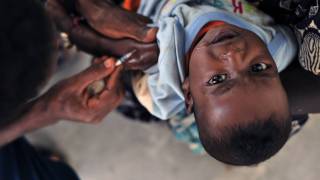More Mumps Cases Reported in Delaware and Pennsylvania

The Delaware Division of Public Health (DDPH) reports 2 additional mumps cases during 2018.
This report by WDEL brings the total number of mumps cases to 13, following social dances during February 2018 at the Chase Center in Wilmington, DE.
“This is the first time Delaware has experienced a mumps outbreak in 5 years, said Dr. Awele Maduka-Ezeh, the medical director of DDPH.
Mumps is a reportable disease in Delaware and suspected cases of mumps should be reported to DPH via email at [email protected]; or phone, 302-744-4990. Healthcare providers are asked not to wait for laboratory test results to return before reporting.
Additionally, the Montgomery County Department of Health and Human Services Office of Public Health (OPH) in Pennsylvania, is investigating several cases of mumps linked to the same February social dance events.
Montgomery County, PA and Chester County, DE are located in close proximity.
The OPH recommends that if an individual is experiencing signs and symptoms consistent with mumps, to contact their healthcare provider immediately.
The OPH also urges residents to verify the immunity status for mumps. Mumps is a vaccine-preventable disease that can be prevented by receiving the Measles, Mumps, and Rubella (MMR) vaccine series.
The Chester County Health Department Clinic can offer a vaccine to those who meet eligibility requirements at no charge. Contact 610-344-6252 for more information.
Before the U.S. mumps vaccination program started in 1967, about 186,000 cases were reported each year, but the actual number of cases was likely much higher due to underreporting. Since the pre-vaccine era, there has been a more than 99% decrease in mumps cases in the United States.
In 2016-17, a large outbreak in a close-knit community in northwest Arkansas resulted in nearly 3,000 cases.
From January 1 to February 24, 2018, 32 states and the District of Columbia reported mumps infections in 304 people to CDC.
Mumps is a viral illness caused by a paramyxovirus, a member of the Rubulavirus family.
Mumps symptoms typically start with a few days of fever, headache, muscle aches, tiredness, and loss of appetite, followed by swollen salivary glands, which results in puffy cheeks and a swollen jaw.
Symptoms typically appear 16 to 18 days after infection but can range from 12 to 25 days after infection. Some people with mumps may not have any symptoms, according to the CDC.
The MMR-II and ProQuad vaccines both contain the protection for mumps, as well as protection against measles and rubella. ProQuad offers additional protection against varicella.
Most pharmacies offer MMR and ProQuad vaccination services.
The CDC Vaccine Price List provides private sector vaccine prices for general information.
Vaccine discounts can be found here.
Vaccines, like any medicine, can have side effects, says the CDC. You are encouraged to report negative side effects of vaccines to the FDA or CDC.
Our Trust Standards: Medical Advisory Committee


























